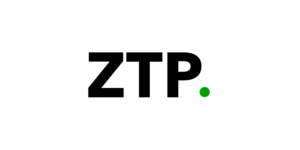Case study: ZTP
State of Open: The UK in 2021
Phase Three: “The Value of Open”

 Alex Hill, Managing Director
Alex Hill, Managing Director
Synopsis
ZTP is an energy consultancy brokerage that supports energy consumers trace their consumption and open source has been vital to the development of their two new energy management portals called trace and Kiveev. One of the key benefits of using open source software within ZTP is the collaborative nature of the communities that are associated with the languages and tools used. The interactions of these communities contributes to their maintenance and ensures they are sustained on an ongoing basis. But not only does this benefit the business, it benefits sustainability within the broader energy sector.
8.3 ZTP
Open source, sustainability, and energy software consultancy
In conversation with Alex Hill, Managing Director
About ZTP
ZTP was established in 2012 as an energy consultancy brokerage to support energy consumers to trace their consumption. It brings together in-house expertise and technological innovations to deliver integrated systems and solutions.
Open source: reshaping sustainability agendas
ZTP recently developed two energy management portals called trace, and Kiveev using open source software and languages, including MySQL, Django and PHP. They felt that these platforms could not have been built without the use of open source software.
Moving forward, they plan on building an internal portal that allows them to combine Energy Performance Certificates (EPC’s) to standardise the available data. Since 2009, all commercial real estate has had to have an Energy Performance Certificate, (EPC). In order to buy or sell property, the EPC rating must be shown to be above a certain level, which demonstrates and promotes a more sustainable environment. Businesses need transparency and access to existing reports and EPC’s which the ZTP platforms facilitate. The use of open source software and open APIs improve the ability for businesses to identify their buildings EPC ratings in order to sell, let and capitalise on their properties. The use of this open source software is facilitating these efforts within the energy sector. As Alex says: “currently businesses can’t make those sorts of connections unless they have a full database of all the EPCs for all the sites they own.”
Through developing these open API’s, businesses can help drive change in the private sector market by allowing investors to more readily identify profitable buildings as opposed to ones which are redundant due to their poor sustainability ratings, and thus indirectly encourage remedial works by their owners. ZTP plans to leverage the benefit of their open API by using it to cross reference their clients’ building data. This open-minded vision is made possible by the skill set of their employees.
Open source skills
At ZTP, proficiency in open source software has become essential to the company and this has been reflected in their recent hiring of three software developers. “For Trace,” Alex explains, “the developers needed to have exposure and experience in Python and Django as a language and a framework”, for the Kiveev team, they needed experience in PHP and or ZTP’s database a working knowledge of MySQL is vital.
Community and open source
Open source can open doors. But it also keeps them open. It creates a positive reinforcement loop.
Alex notes that a significant benefit of open source software within ZTP is the collaborative nature of the communities associated with the languages and tools they use and how those communities’ interaction contributes to their maintenance and ensures that they are sustained on an ongoing basis. They see this sitting in opposition to the natural product lifecycle dictated by a proprietary code.
Without open source, Alex emphasises, “we wouldn’t really have had a business”. For ZTP, the benefits and opportunities that open source brings to them as a business are clear and they expect that this will increase in the future. But in this case, doesn’t just bring a business benefit. Their use of open source for platforms that improve EPC’s in turn improves sustainability within the overall energy sector.
